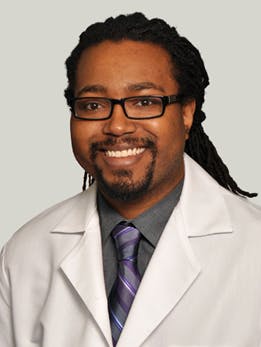Intestinal Failure and Short Bowel Syndrome in Adults
What is intestinal failure?
Intestinal failure is a rare condition of the intestine in which the small intestine and large intestine cannot digest and absorb adequate fluids and nutrients (protein, fats, vitamins and minerals) from diet alone. In this setting, fluids and calories are delivered into the body using solutions called parenteral nutrition (PN), which enter the body through specialized intravenous (IV) catheters called central lines.
What is a parenteral nutrition solution?
Parenteral nutrition solutions are specialized formulas designed to provide adequate calories, nutrients, vitamins and fluids to support growth and maintain health for patients with intestinal failure.
Given the complexity of the delivery of calories and nutrition directly into the bloodstream, management of parenteral nutrition is best performed at intestinal failure or intestinal rehabilitation centers which allow for a multidisciplinary approach to care.
What causes intestinal failure?
Intestinal failure occurs when the intestines are not able to digest and absorb the necessary components of a diet to support growth and health. A number of conditions affecting the intestines can result in intestinal failure, including:
What is short bowel syndrome?
Short bowel syndrome is a complex condition that can affect both children and adults and is due to a loss of intestine due to injury, disease or surgery. Extensive loss of small intestine results in an inability to absorb adequate vitamins, minerals, nutrients and fluids for adequate growth and maintenance of health. Most often, individuals with short bowel syndrome have altered intestinal anatomy requiring specialized nutrition care.
Short bowel syndrome can manifest as vitamin or mineral deficiencies and dehydration with or without kidney injury when there is an excess loss of water from the body in the form of diarrhea or high ostomy output.
Mechanical obstructions or motility disorders of the small intestine impair the intestines' ability to digest and push food and fluids down the intestinal tract. This impaired ability to propel the intestinal contents leads to a backup of food and fluids resulting in vomiting and an inability to maintain adequate hydration and nutrition. Multidisciplinary care is required in order to achieve the best outcomes, focusing on:
- Medications to propel the small intestines
- Surgery to help relieve obstructions
- Management of parenteral nutrition
An intestinal fistula is an abnormal connection of the stomach or intestines to the skin or to other parts of the intestines most often caused by prior inflammation or surgery. The intestines can form abnormal connections to the skin, small bowel or colon, rectum, bladder or vagina resulting in leakage of intestinal contents. Fistula most often develop as a part of Crohn’s disease, following:
- Surgery or radiation to the abdomen,
- Inflammation in the intestines (diverticulitis) or
- Trauma or injury
Parenteral nutrition support is often required to help manage the intestinal fistula and maintain adequate nutrition during the healing process.
Extensive mucosal diseases of the small bowel are a rare cause of intestinal failure. Mucosal diseases of the small intestine include:
- Advanced celiac disease
- Crohn’s disease
- Bacterial overgrowth
- Tropical sprue
- Common variable immune deficiency
- Radiation damage to the intestine
- Congenital disorders
- Rare medication side effects
Parenteral nutrition helps maintain adequate nutrition while the underlying disorder is managed in an attempt to improve intestinal absorption.
Given the wide range of underlying causes of intestinal failure, appropriate management requires a knowledgeable nutrition support team in order to guide the patient and help manage their condition.
Treatment Options for Intestinal Failure
The hallmark of intestinal failure management — also known as intestinal rehabilitation — is the intravenous delivery of nutrition and hydration, often called PN for parenteral nutrition. A specialized team of physicians, nurses, dietitians and pharmacists is required for the handling, educating and delivering parenteral nutrition in order to ensure the best patient outcomes and experience. The nutrition support team at the University of Chicago Medicine was recognized by the American Society of Parenteral and Enteral Nutrition as a Clinical Nutrition Team of Distinction in 2020 given its experience and dedication to patient care.
Apart from the management of parenteral nutrition and the care from the nutrition support team, a team of gastroenterologists, hepatologists, radiologists, surgeons and pathologists works together to understand the underlying cause of an individual’s intestinal failure, while creating a management plan aimed at reducing their dependence on parenteral nutrition.
Short Bowel Syndrome in Adults
What causes short bowel syndrome?
With normal growth, adults develop 12-20 feet of small intestine resulting in a large surface area to absorb nutrients from our diet. Short bowel syndrome is diagnosed when an adult has less that 200 cm (6.56 feet) of small intestine. The primary causes of loss of small intestine include surgical removal due to inflammatory bowel disease or Crohn's disease, tumors of the small intestine and disorders of blood flow to the small intestine (mesenteric ischemia). Trauma, injury and prior surgeries to the small intestine can also lead to altered anatomy, which can result in short bowel syndrome.
Treatment Options for Short Bowel Syndrome
Given the wide range of causes of short bowel syndrome, differences in individual anatomy and presentation differences, treatment requires a multidisciplinary approach to tailor the treatment to the patient. The nutrition support team at the University of Chicago Medicine is a nationally recognized program consisting of physicians, dietitians, nurses and pharmacists aimed at individualizing nutritional care for each patient.
The primary treatment goals include:
- An evaluation for nutritional deficiencies
- Management of any underlying medical condition resulting in short bowel syndrome
- Prevention of dehydration and vitamin deficiencies using medications, surgery and dietary guidance
Treatment options include:
The foundation of the management of short bowel syndrome includes specialized dietary guidance aimed at improving absorption of oral calories and liquids. Patients meet with a dietitian to focus on types of foods, beverages, and supplements of vitamins and minerals, and dietary strategies that are needed to minimize malabsorption and diarrhea or liquid output.
Medical management of short bowel syndrome consists of anti-diarrheal therapies to increase the compliance of the small intestine and reduce water losses. Anti-secretory therapies reduce intestinal secretions that can worsen dehydration in individuals with short bowel syndrome. Most recently, new medications that result in a growth of the small intestine are aimed at improving absorption from the small intestine are utilized and available in clinical trials at the University of Chicago Medicine.
At times, patients will require delivery of special fluids and nutrients through tubes in the stomach (G-tube) or small intestine (J-tube); this is commonly known as enteral nutrition (EN) support. Specialized feeding formulas can supplement or fully replace an oral diet allowing for delivery of calories and nutrients to support growth. In rare circumstances, the small intestine is unable to absorb enough nutrients. In this case fluids and calories are given directly into the blood stream using specialized catheters placed in a large vein near the heart (central line) for delivery of intravenous nutrition or parenteral nutrition (PN).
In some cases, surgery is required following a diagnosis of short bowel syndrome. Following a large surgical resection, patients are often left with areas of intestine that are left in discontinuity or with a diverting ostomy. Surgery to recruit intestine that is left out of circuit allows for additional surface area for digestion and absorption of oral nutrients. The University of Chicago Medicine colorectal and small bowel surgeons specialize in complex and altered surgical anatomy aimed at improving the lives of patients with short bowel syndrome.
Comprehensive Care from a Team of Specialists
In 2020 the American Society of Parenteral and Enteral Nutrition recognized the University of Chicago Medicine nutrition support team as a Clinical Nutrition Team of Distinction because we use an interdisciplinary team approach to manage patients with short bowel syndrome and intestinal failure. The University of Chicago’s nutrition support team collaborates with physicians with expertise in caring for the complex medical and surgical problems including gastroenterologists, surgeons, radiologists and pathologists.
Meet the Team
Nutrition Support Team
- Registered dietitians
- Registered nurses
- Pharmacist
Request an Appointment
You can also make an appointment with our providers by:
– Requesting an online second opinion from our specialists
To speak to someone directly, please call 1-888-824-0200. If you have symptoms of an urgent nature, please call your doctor or go to the emergency room immediately.
* Indicates required field



